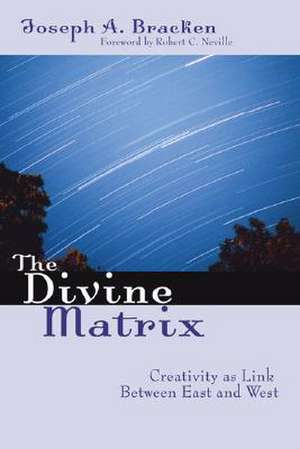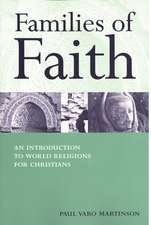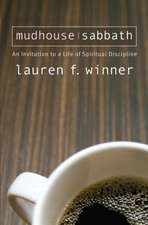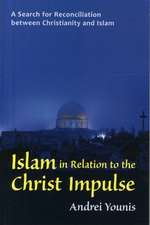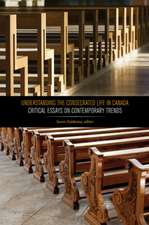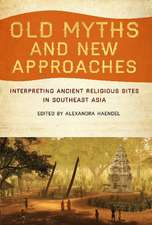The Divine Matrix: Creativity as Link Between East and West
Autor Joseph A. Bracken Robert Cummings Nevilleen Limba Engleză Paperback – 28 feb 2006
Preț: 146.44 lei
Nou
Puncte Express: 220
Preț estimativ în valută:
28.02€ • 29.20$ • 23.20£
28.02€ • 29.20$ • 23.20£
Carte disponibilă
Livrare economică 13-27 martie
Preluare comenzi: 021 569.72.76
Specificații
ISBN-13: 9781597525947
ISBN-10: 1597525944
Pagini: 179
Dimensiuni: 153 x 231 x 11 mm
Greutate: 0.4 kg
Editura: WIPF & STOCK PUBL
ISBN-10: 1597525944
Pagini: 179
Dimensiuni: 153 x 231 x 11 mm
Greutate: 0.4 kg
Editura: WIPF & STOCK PUBL
Textul de pe ultima copertă
Dialogue among religions has always been challenging. Today, the questions are becoming more fundamental: are the various traditions - Buddhist, Christian, Hindu, Tao - even talking about the same thing when they speak of Nature, or God, Emptiness or Brahman? The Divine Matrix represents a bold scholarly attempt to provide a framework for discussing theseand other - questions that will keep the interreligious dialogue project from grinding to a halt. In The Divine Matrix philosopher and theologian Joseph Bracken first locates the Infinite as transcendent source and goal of human activity as the notion common to virtually all the major world religions. He suggests that the Infinite is prototypically experienced not as an entity but as an ongoing activity - the principle of activity for all beings (God included). This idea is consistent with the notion of eternal and continuous motion in Aristotle, with the "act of being" (actus essendi) in the theology of Thomas Aquinas and Meister Eckert, and with the ground of being of Shelling and Heidegger, as well as with Whitehead's definition of "creativity". Bracken goes on to show that this idea is implicit in descriptions of Brahman in the Hindu Upanishads, in the experience of pratitya-samutpada ("dependent co-arising") in classical Buddhism, and in descriptions of the Tao in Tao Te Ching and Chuang Tzu.
Descriere
Bracken first locates the Infinite as transcendent source and goal of human activity as the notion common to virtually all the major world religions. He suggests that the Infinite is prototypically experienced not as an entity but as an ongoing activity--the principle activity for all beings, including God.
